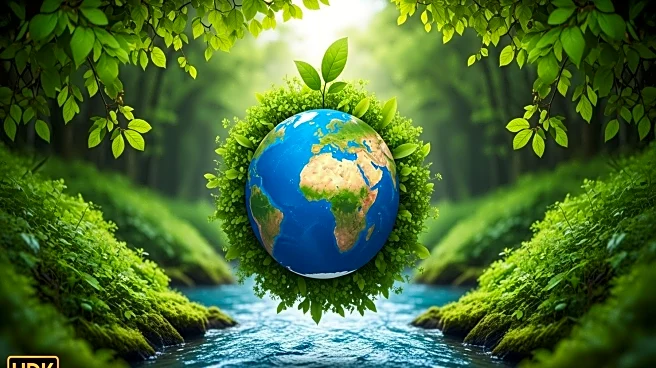What's Happening?
Miam! Distribution has acquired the international rights to 'Trash!', a live-action and stop-motion hybrid series that explores the global issue of waste through the perspectives of discarded items. The series, produced by Darjeeling and airing on Arte France, features four 13-minute episodes set in Paris. It follows Gobi, a single-use coffee cup, on a journey to find its owner after being discarded. The series highlights themes of fast consumption and waste management, aiming to resonate with audiences through its unique storytelling and graphic design. The acquisition strengthens Miam! Distribution's collaboration with Darjeeling, which has previously resulted in successful international projects.
Why It's Important?
The acquisition of 'Trash!' by Miam! Distribution underscores the growing interest in environmental narratives within the entertainment industry. By focusing on waste management and consumption, the series contributes to the broader discourse on sustainability and environmental responsibility. It also reflects a shift in media towards addressing global challenges through creative storytelling. The series' success on platforms like TikTok, with millions of views, indicates a strong public interest in environmental issues, potentially influencing public policy and consumer behavior towards more sustainable practices.
What's Next?
Following its acquisition, 'Trash!' is expected to reach a wider international audience, potentially sparking further discussions on environmental issues. Miam! Distribution's partnership with Darjeeling may lead to more projects that focus on sustainability and environmental themes. The series could also inspire other filmmakers to explore similar topics, contributing to a growing trend of environmentally conscious media. Additionally, the involvement of French institutions committed to sustainable initiatives suggests potential collaborations for future projects.
Beyond the Headlines
The series 'Trash!' not only addresses environmental issues but also explores the cultural and ethical dimensions of waste management. By giving a voice to discarded items, it challenges viewers to reconsider their consumption habits and the impact of waste on society. The series' innovative approach to storytelling may influence how environmental narratives are portrayed in media, encouraging more creative and impactful representations of global challenges.









